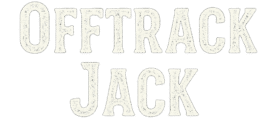Part 1: The Panic to Fix It
After The Unravelling, I didn’t know what to do.
So, like most people who screw up badly, I started trying to do everything, fix everything.
I wasn’t thinking clearly. I was reacting.
Trying to undo the damage.
Trying to explain myself.
To “be better” overnight.
I didn’t even know what I was fixing, just that something huge had broken, and sitting still made it worse.
So, I panicked.
I sent too many messages.
Offered too much help.
Tried to do everything that was asked of me all at once.
I thought maybe if I’m good enough now, it will cancel out what I did then.
Spoiler: it doesn’t work like that.
At the time, I told myself I was trying to show change.
But looking back, I think I was just trying not to lose more.
I was scared. Not just of the fallout but of who I might become if I didn’t do something.
If I didn’t prove I could be different.
But deep down, I already knew this isn’t something you fix in a week.
This was going to take a long time.
And that’s when the next mistake started…
PART 2: The Chaos of Over-Correction
The moment I realised things weren’t bouncing back, I went into overdrive.
I became the guy who couldn’t stop doing.
Couldn’t stop texting.
Couldn’t stop trying too hard.
I tried to act like the person I should’ve been all along. Except now I was doing it out of fear, not integrity.
Not because I had changed… but because I was terrified of what might happen if I didn’t.
And that’s the danger with over-correcting:
It might look like change…
But it feels like desperation.
To the people around you, it’s not reassuring.
It’s suspicious.
Because when someone goes from absent to over-involved overnight, the question isn’t,
“What’s different now?”
It’s,
“Why didn’t you care before?”
“I wasn’t rebuilding trust. I was performing hope. And everyone could feel it.”
I remember a conversation that snapped me back to reality.
It was loud, and it was honest.
Someone close to me said, in not so many words:
“Now you want to change? You should’ve done this long ago.”
And it stung.
Because it was true.
I wasn’t focused on what really mattered, like the people I’d hurt, the words I hadn’t said, the stuff I actually needed to own.
I was focused on activity. On impression. On saving face.
If I had to do it again?
I’d do less.
Talk less.
And start with one simple thing:
Be calm. Be consistent. And stop trying to fix what needs to be felt first.
Part 3: Then Stop Touching Things
It wasn’t something anyone said to me directly.
No dramatic face-off or raised voices.
It happened in bed one night, long after the kids fell asleep.
I was watching a movie, trying to keep my brain quiet.
There was this scene. One guy, completely broken, says,
“Everything I touch goes to hell.”
And the other guy just answers:
“Then stop touching things.”
I sat there, and for the first time in a while, I felt… seen.
That line wasn’t meant for me, but it landed like it was.
Because that’s exactly how I’d been feeling for years.
Like I had this pattern of wrecking the good stuff.
Messing up what mattered.
Grabbing at things with good intentions and watching them crumble in my hands.
That line became truth in one sentence:
Stop trying to undo what’s already done.
Until then, I’d been in full scramble mode. Texting too much, over-helping, apologizing in circles, trying to fix people’s feelings like I could just patch them up and move forward.
But the damage had already been done.
And no amount of noise could undo it.
That moment, quiet, unexpected, movie-born, told me what I hadn’t wanted to hear:
This isn’t fixable in a week. Or a gesture. Or a good intention.
This is going to take time. And presence. And actual change.
It wasn’t peace I felt next.
But it was something close: relief.
Relief that I could finally pause. That I didn’t have to keep spinning.
Relief that maybe, just maybe, I could focus on the right things now.
Like the relationships that matter.
The habits that have to die.
The parts of me that need rebuilding, not rebranding.
From that night on, something shifted.
The panic didn’t leave.
But it got quieter.
And for the first time, so did I.
Part 4: What Real Change Looks Like
Real change doesn’t feel like a breakthrough.
It feels like a Tuesday.
It’s not dramatic or powerful.
It’s painfully normal.
It looks like choosing the right thing when no one’s watching.
And doing it again tomorrow.
After that night in bed, after “Then stop touching things” became my reset, I stopped trying to perform.
I stopped over-talking.
Stopped pretending I could fix what had already bled.
And I started doing smaller things.
Quieter things.
Things that didn’t feel like enough… but were probably the only place to start.
Like staying calm when I wanted to explain myself.
Picking up the phone to say I’m sorry, not to convince anyone, but because I meant it.
Showing up at home without needing praise.
Not texting back immediately when I felt desperate to be heard.
That was the first sign I might actually be changing:
When I started doing the right things without needing a round of applause.
“I used to think change would feel bold. Strong. Convincing.
It didn’t. It felt like silence. Like doing the dishes. Like showing up tired but still showing up.”
It didn’t. It felt like silence. Like doing the dishes. Like showing up tired but still showing up.”
It hit me slowly, this truth I kept avoiding:
I can’t undo The Unravelling.
I can’t fast-forward through the consequences.
But I can stop making it worse.
I can stop pressing buttons, digging holes, asking for trust before I’ve earned it.
And I can start with what matters most:
The relationships I damaged.
The words I withheld.
Promises I dropped.
The habits that fed the old version of me.
This time, I don’t want a comeback story.
I want a quiet one.
One where the people closest to me slowly start to breathe easier.
Not because I said the right thing…
But because I finally started doing the right things. Over time.
Part 5: Reflecting on the Long Road to Repair
Nobody tells you how long this takes.
Not just the apology, anyone can say “I’m sorry.”
Not just the consequences. Those hit fast, like a wave.
But the rebuilding?
That’s the slow part. The part that humbles you daily.
Since The Unravelling, not a single week has gone by where I haven’t thought:
“Is this enough yet?”
And most days, the answer is no.
Not because I’m not trying. God knows I am.
But because trust doesn’t work like that.
You can’t speed it up.
You can’t beg for a shortcut.
You can’t repair something while still standing in the rubble asking for praise.
There’s this weird tension you live with, especially when your mistakes hurt people you still love.
On one hand, you want to move forward.
Start fresh.
Be better.
But on the other hand, you know some of the damage is permanent.
Some people may never trust you again.
Some looks will never go back to what they were before.
And no matter how much good you do now, it doesn’t erase what happened then.
That’s the part I struggle with the most:
Living in the middle space.
Not hated, but not forgiven.
Still here, but not welcomed fully.
Allowed to try again, but without any guarantees.
And honestly, that’s fair.
Because this isn’t a movie.
There’s no dramatic redemption arc.
There’s just me, doing the dishes, paying the bills, watching my kids grow, writing these posts, and hoping…
Hoping the people I love see that I’m not running anymore.
I’m walking this road.
And I’ll keep walking it, even if I have to do it alone for a while.
Part 6: The Fear That Still Follows
I wish I could say the worst part is over.
That after months of showing up, staying calm, owning what I broke, I’ve finally turned a corner.
But if I’m honest?
I still carry fear every single day.
Some mornings, it’s just a whisper.
Other days, it sits heavy on my chest before I’ve even opened my eyes.
Fear that the damage is permanent.
Fear that people are still talking.
Fear that something else is coming, something I missed or forgot or buried too deep.
And worse than all of that?
Fear that the people I hurt might never believe I’ve changed.
There are nights I lie awake imagining conversations that haven’t happened yet.
Emails that might still come.
Legal consequences that may still be looming.
People I haven’t heard from, wondering what they know. Or worse, what they think they know.
That’s the reality when you’ve crossed a line you can’t uncross.
You live with the unknown.
You learn to breathe through the not-knowing.
And even when I’m doing well, being present, showing up, loving harder, there’s this thought that flickers in the background:
“What if it’s still not enough?”
Because shame is sneaky.
It doesn’t scream anymore.
It just lingers. Quietly convincing you that no matter how far you’ve come… you still don’t deserve peace.
But here’s the thing I’ve had to remind myself of:
I’m still here.
Still walking.
Still choosing not to hide.
And every time I show up anyway, despite the fear, despite the past, despite the doubt, that’s a step forward.
Even if no one claps.
Even if no one sees it but me.
Part 7: The Long View – Rebuilding Without a Deadline
I used to think healing had a timeline.
That if I worked hard enough, said enough of the right things, kept showing up. Eventually, the dust would settle and the people I hurt would say,
“Okay. That’s enough. We’re good now.”
But the truth?
There’s no set point where it all clicks back into place.
No obvious checkpoint that says, “You’ve made it through.”
No guarantee that trust will ever be fully restored.
Only the work. And the waiting.
And weirdly, that’s brought a kind of peace I didn’t expect.
Because once you let go of the finish line, you finally start paying attention to the walk.
Now, I don’t wake up hoping today will be the day.
I wake up hoping I’ll just do better than yesterday.
Sometimes that means biting my tongue when I want to defend myself.
Sometimes it means saying less and doing more.
Sometimes it means staying quiet in a room where my past speaks louder than I can.
And other times, it means playing Lego on the floor with my kids, knowing I can’t undo the past but I can shape the present.
That’s what rebuilding looks like now.
Not fireworks.
Not big speeches.
Just honest effort, day after day, without asking the world to notice.
I still don’t know how this ends.
I don’t know which relationships I’ll be able to repair.
I don’t know what the final cost of The Unravelling will be.
But I do know this:
I’m not running anymore.
I’m not performing.
I’m not begging for shortcuts.
I’m walking, with dirt under my nails, doubt in my gut, and something new in my chest.
Something like hope.
Something like peace.
And if it takes the rest of my life to keep showing up like that?
Then so be it.


